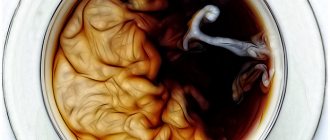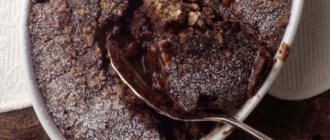Let's talk about berries that are good for your health and skin. Some of them may surprise you.
What we put into our bodies can have just as much of an impact on our skin. In particular, berries contain vitamins and antioxidants that will definitely suit her taste.
When you say the word "berry", you may think of strawberries and raspberries, but they are not actually berries. According to Judy Jernstedt, a professor of plant sciences at the University of California, Davis, these fruits got their names thousands of years ago, before science had a definition for the word berry.
According to Live Science, for a true berry to be classified botanically, the fruit must have an outer shell called an exocarp, a fleshy middle called a mesocarp, and an interior containing seeds called an endocarp. It must also have two or more seeds and come from a flower with a single ovary. This is why strawberries and raspberries are not considered true berries - they come from a flower with more than one ovary.
You might be surprised by some of the fruits on this list, like bananas and watermelon—they're actually classified as berries. Each of these nutrient-rich fruits has skin care benefits.
Blueberry
Perhaps one of the most famous berries, blueberries are the best thing for your skin. At least because it is rich in antioxidants.
Antioxidants fight cell damage caused by free radicals (unstable atoms). In fact, their action is associated with the development of chronic diseases, as well as the acceleration of the aging process.
According to nutritionist Katie Davidson, MScFN, RD, blueberries are especially rich in anthocyanins. These are plant compounds that “have strong antioxidant properties and give blueberries their natural purple-blue hue.”
Blueberries can help improve circulation, notes Davidson, reduce inflammation associated with acne, and boost collagen production, which helps strengthen the skin and plays a key role in maintaining elasticity, which reduces wrinkles.
How many days does alcohol stay in the blood?
Alcohol has the ability to be hydrophilic.
Due to this property, its highest concentration will be observed where there is the maximum amount of water. For example, in the blood itself the amount accumulated will be many times greater than in plasma.
There are 3 stages of exposure to intoxicating:
- Absorption - begins immediately as soon as the drink enters the oral cavity and continues until the maximum concentration of its level is reached. On an empty stomach this happens almost immediately, unlike the state after eating. The rate of absorption is also affected by carbonation and the presence of related additives.
- Oxidation is a sharp decrease in concentration.
- Excretion is a process where ethanol is actively released into feces, urine, sweat, and even into the air that we exhale. It is these elimination routes that are often used to conduct rapid tests. The discharge period usually lasts from 8 to 12 hours.
For example, weak drinks like beer are removed no longer than after 2-4 hours, champagne and wine – up to 5-6 hours, but it may take a whole day to process vodka or cognac.
Please remember that these are just estimates and may vary due to many of the reasons given above.
Watermelon
Yes, watermelon is actually a berry. The fruit, scientifically named pepos, is a special category of berry—with a tough skin, many flat seeds, and fleshy pulp—and it's also good for the skin. While the inside of the watermelon is deliciously juicy, sweet and nutritious, the rind is especially good for the skin as it is rich in vitamins B6 and C.
B vitamins are good for the skin because they stimulate metabolic processes and help cells renew themselves. Vitamin B deficiency can cause acne, dry skin, rashes and wrinkles. Vitamin C, as a powerful antioxidant, can help repair and protect cells from free radical damage.
At the same time, it is not at all necessary to eat the watermelon peel; you can squeeze the juice out of it and add it to a smoothie or simply rub it into the skin.
According to dermatologist Anna Guanche, Koreans have been using watermelon rind for skin care for decades. She told Business Insider: "Korean grandmothers would rub watermelon rind onto sunburn, rashes or irritated skin to soothe it and help it recover faster. "Cooling masks that combine watermelon rind with avocado or banana may help promote healing." This is why watermelon-based cosmetics are so popular in K-beauty.
Symptoms of caffeine overdose
Unfortunately, drinking coffee has become a habitual ritual for many. In an attempt to get themselves into working condition as quickly as possible, people turn to coffee almost immediately after sleep. However, the negative consequences of such a habit will not be long in coming.
Often the symptoms of a caffeine overdose are perceived by people as negative consequences of daily stress, anxiety and an unsettled lifestyle:
- insomnia;
- depression;
- nervousness and irritability;
- increased anxiety.
To a lesser extent, symptoms of caffeine overdose include frequent urination (enuresis), fluctuations in blood pressure, increased body temperature, heartburn, nausea, diarrhea, deterioration of the skin (caused by dehydration), vision problems and dizziness.
Caffeine-containing drinks are recommended to be consumed with caution by people with increased nervous excitability, cardiac arrhythmia, peptic ulcer, gastritis, atherosclerosis and glaucoma.
Rice. 1. Caffeine content in coffee and tea.
Grape
Grape berries are classified as "true berries" because the wall of the fruit, known as the pericarp, is entirely fleshy. Like blueberries, grapes are rich in antioxidants. It also contains vitamin K, which helps maintain healthy bones and muscles.
In addition to their nutritional value, grapes are good for moisturizing the skin since they are 82% water. Staying hydrated is key to healthy skin. If you don't drink enough water, it can become tight and dry, less elastic and prone to wrinkles.
How long does it take to eliminate alcohol?
You can judge how long it will take before the body is completely cleansed based on the following factors:
Human health. Almost everything you drink is eliminated by the liver, and only a small part of it is excreted by the excretory system. If there are any diseases of this important organ, and people often do not know about them, processing will be more difficult, and the whole process may be significantly delayed. The work of the genitourinary system, respiratory system and sweat glands is no less important.- Weight. It also plays a huge role, because the fatter a person is, the lower the concentration of ethanol will be and the faster the removal of harmful substances will occur.
- Time between appointments. A short period of time between libations will not give you time to recover.
- Floor. In the fair sex, excretion lasts 20% longer than in men. So, for example, a bottle of beer drunk from a man’s body will disappear without a trace after 3 hours, while in women the same effect will be achieved only after 4-5 hours.
- Type of alcohol. It is very important to consider what exactly you are consuming. The more alcohol in the drink, the longer it will take to excrete. Thus, cognac and vodka are the leaders in terms of elimination time.
- Amount drunk. The larger the dose, the harder it is for the body to process it.
Bananas
A banana tree is a plant whose fruits are formed from one ovary and several seeds. So, from a scientific point of view, bananas are berries. They are good for skin health because they are high in vitamins C, B6 and A. The latter, an antioxidant, helps hydrate the skin and also speeds up the skin's healing process and prevents breakouts.
According to Zara Risoldi Cochrane, PharmD, MS, FASCP, vitamin A may help those who suffer from acne. “It all depends on the source and how you use it,” she says. "Eating foods rich in vitamin A can promote better skin health from the inside out, while topical formulas can directly combat breakouts."
Summarize
Caffeine is an effective natural way to boost your energy levels, but many people feel they are consuming too much and want to get it out of their system quickly.
Side effects of excessive caffeine consumption include trouble sleeping, jitteriness, unsteadiness, and increased heart rate.
Other than waiting and avoiding caffeine, there is no effective home remedy that can remove caffeine from your body. However, you can reduce its side effects by staying hydrated, walking, and eating fiber-rich foods.
Most people can safely tolerate 400 mg of caffeine per day - about 4 cups (945 ml) of coffee - although your personal limits may vary. Be sure to listen to your body and only consume an amount that you feel comfortable with.
Why you need to wait for a state of absolute sobriety and then get behind the wheel
When a person begins to get sober, alcohol is still present in his body. Even if your head has already cleared up, you should under no circumstances get behind the wheel, because the harmful substances have not yet finished their effects. You should not rely on products that promise to completely remove unpleasant odors and traces of intoxication. They will remove only some symptoms, but nothing more. Remember that even a small amount of ethanol in the blood can reduce a person’s reactions. It is much more difficult for the driver to navigate the road, although it seems to him that he is already completely sober and ready to travel. If a person drank 2 bottles of beer, which corresponds to only 0.7-0.8 ppm, his eyes will perceive colors much worse, especially red. There is no point in risking your life and the lives of other people. Wait until the harmful substances leave you on their own.
How long does alcohol last in urine?
When there is no longer alcohol in the blood, this does not mean its complete absence in the body. After all, removing ethanol is the last stage of getting rid of the influence of drinking. On average, laboratory tests can detect ethanol in urine within approximately 5 hours of the excretion stage.
The content of a harmful substance in urine depends not only on the amount consumed, weight, gender or health, but even on the last time you visited the toilet for a minor need. It is almost impossible to say for sure how long it takes for alcohol to completely leave the body.
After an intoxicant enters the body, many transformations occur before it disappears completely. The alcohol breaks down and acedehyde is formed, which later turns into acetic acid. In turn, acetic acid decomposes into water and carbon dioxide. These changes are controlled by the enzymes alcohol dehydrogenase and acetaldehyde dehydrogenase. The time until complete elimination of unwanted elements depends on the activity of these enzymes.
The state of intoxication lasts until acedehyde is formed. Then a hangover sets in until acetic acid is formed. However, there is a standard rate at which ethyl alcohol leaves the human body - 0.1 g of the substance per 1 kilogram in 1 hour. Using this formula, you can calculate for yourself the approximate time needed to remove alcohol.
Also, there are several corrective factors that affect delayed excretion:
individual characteristics of the body in the form of severe hangover symptoms;- poor health at the time of intoxication or illness;
- emotional condition. In a good mood, the state of sobriety occurs much faster than in a bad mood. Not everyone finds drinking to have a relaxing effect, elevating their mood. There are people for whom the effect after drinking is completely opposite.
- In each person, the destruction of harmful substances in the liver occurs differently, even if this organ is completely healthy. This depends mainly on genetic factors.










